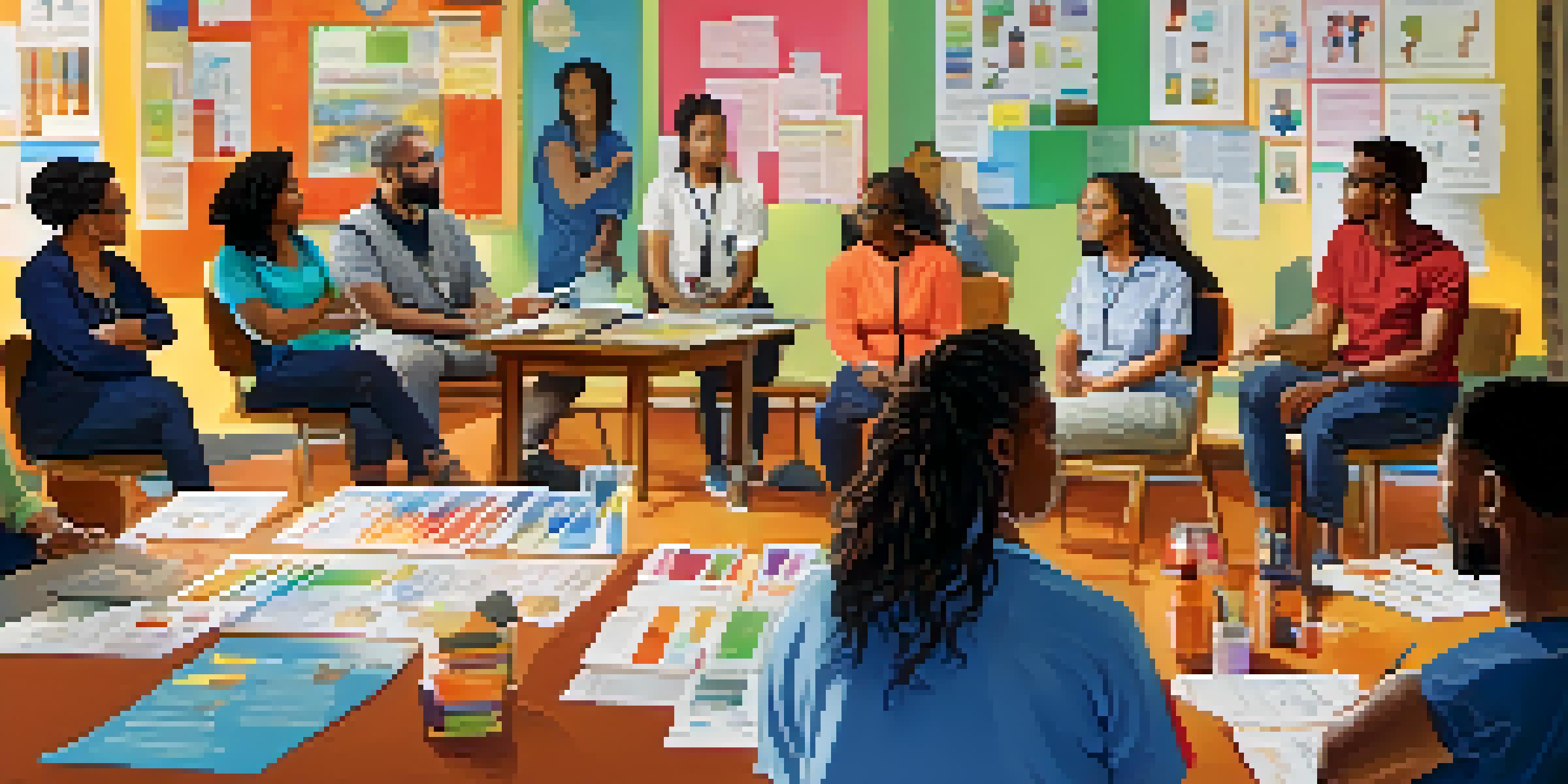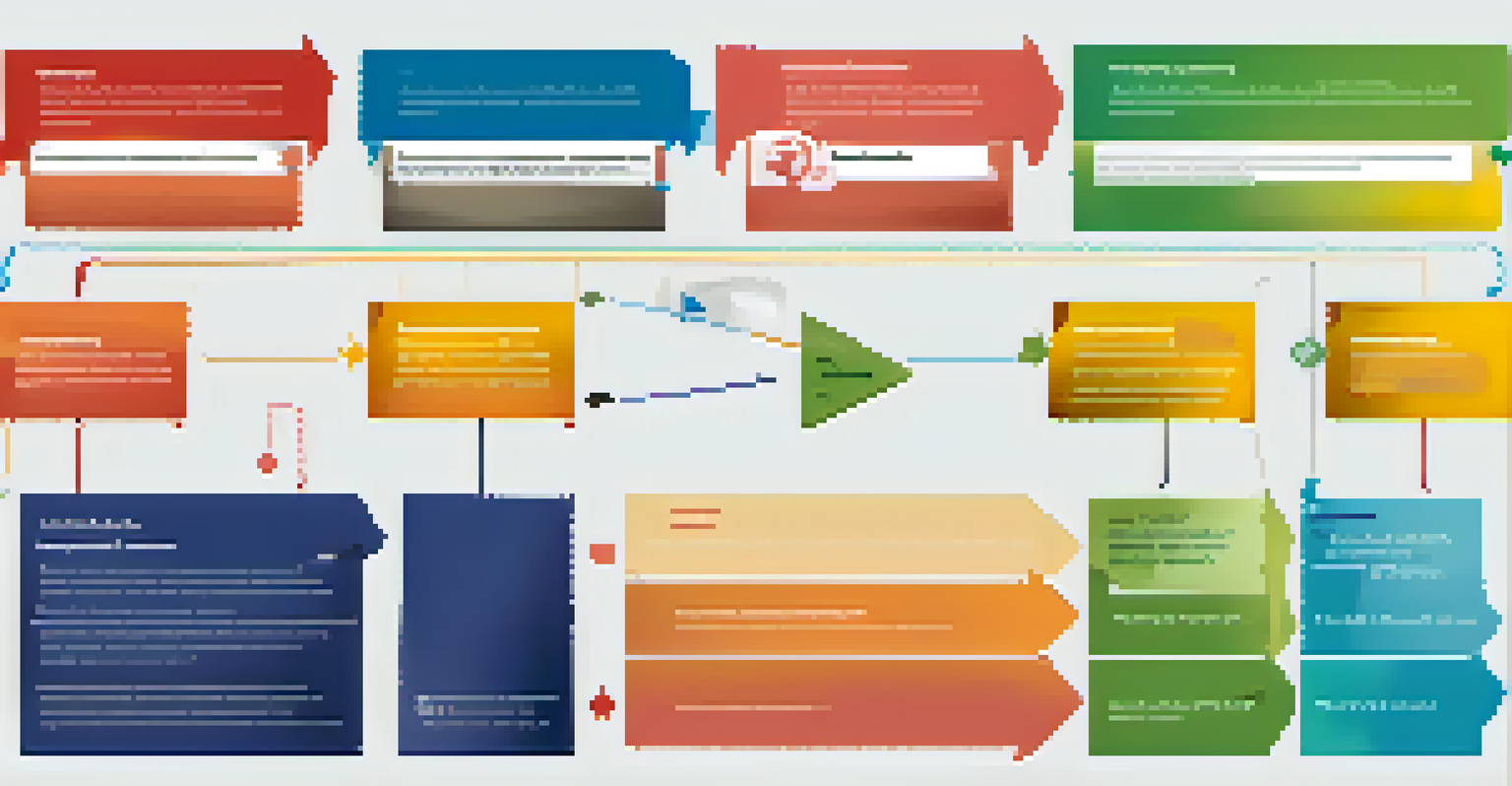The Importance of Feedback in Health Literacy Programs

Understanding Health Literacy and Its Significance
Health literacy refers to an individual's ability to obtain, process, and understand basic health information. This skill is crucial for making informed health decisions and navigating the healthcare system. When people have strong health literacy, they are more likely to manage their health effectively, leading to better outcomes and reduced healthcare costs.
Health literacy is a crucial factor in improving health outcomes and reducing health disparities.
The significance of health literacy extends beyond individual benefits; it impacts public health as well. Communities with high health literacy levels tend to experience lower rates of chronic diseases and better overall health outcomes. Therefore, enhancing health literacy should be a priority for health organizations and policymakers alike.
In this landscape, feedback plays a pivotal role in shaping health literacy programs. It allows educators and program developers to tailor their content and delivery methods to meet the specific needs of their audience. By integrating feedback into the program design, stakeholders can ensure that their initiatives are both effective and relevant.
The Role of Feedback in Developing Programs
Feedback serves as a compass for program developers, guiding them in creating relevant and impactful health literacy initiatives. By engaging with participants, developers can gain valuable insights into the effectiveness of their materials and teaching methods. This process ensures that programs are not only informative but also resonate with the target audience.

Moreover, feedback can highlight gaps in knowledge or areas that participants find particularly challenging. Identifying these issues early can lead to the development of supplementary resources or alternative teaching strategies, ultimately improving the overall effectiveness of the program. For example, if participants struggle with understanding medication instructions, additional workshops or visual aids can be introduced.
Health Literacy Empowers Individuals
Understanding health literacy enables individuals to make informed health decisions and manage their well-being effectively.
Incorporating feedback loops throughout the program's lifecycle fosters a culture of continuous improvement. This means that health literacy programs can adapt over time, responding to emerging health trends and community needs. By valuing participant feedback, developers can create a more dynamic and responsive educational experience.
Types of Feedback to Consider
There are various types of feedback that can be integrated into health literacy programs, each offering unique insights. Formative feedback, gathered during the program, focuses on participants' understanding and engagement. This type of feedback allows educators to make real-time adjustments to enhance learning experiences.
Feedback is the breakfast of champions.
Summative feedback, on the other hand, is collected after the program's completion and evaluates its overall effectiveness. This can include surveys, interviews, and assessments that gauge participants' understanding and application of health information. Both types of feedback are essential for evaluating success and informing future iterations of the program.
Additionally, peer feedback among participants can foster a supportive learning environment. Encouraging participants to share their thoughts and experiences can lead to deeper discussions and shared learning, which is particularly valuable in health literacy education.
Creating Effective Feedback Mechanisms
To harness the power of feedback, health literacy programs must establish effective mechanisms for collecting and analyzing it. This can include surveys, focus groups, or informal discussions that encourage open dialogue. The key is to create a safe space where participants feel comfortable sharing their thoughts and experiences.
Digital tools can also streamline the feedback process, offering real-time insights through online surveys or interactive platforms. These tools allow for quicker data collection and analysis, enabling program developers to respond swiftly to participant needs. For instance, using an app that tracks participant progress and gathers feedback can help identify trends and areas for improvement.
Feedback Enhances Program Effectiveness
Incorporating feedback from participants helps developers tailor health literacy programs to meet specific needs and improve learning outcomes.
Ultimately, the goal is to make feedback a seamless part of the learning experience. When participants see that their input is valued and leads to tangible changes, they are more likely to engage fully in the program. This creates a positive feedback loop that benefits both participants and program developers.
Feedback's Impact on Participant Engagement
Engagement is a critical component of effective health literacy programs, and feedback plays a significant role in fostering it. When participants feel that their opinions matter, they are more likely to invest time and effort into the program. This sense of ownership can lead to better retention of information and a greater willingness to apply what they've learned.
Moreover, feedback can enhance motivation by providing participants with a sense of progress. Celebrating small victories and acknowledging improvements can reinforce positive behaviors and encourage continued learning. For example, if participants receive positive feedback on their ability to understand health information, they may be more inclined to seek out additional resources.
Active engagement through feedback also promotes community building among participants. Sharing experiences and learning from one another creates a supportive environment where individuals feel connected. This camaraderie can lead to increased motivation and a shared commitment to improving health literacy within the community.
Overcoming Challenges in Collecting Feedback
While feedback is invaluable, collecting it can come with challenges. Some participants may feel hesitant to share their true thoughts due to fear of judgment or repercussions. To overcome this, program developers can emphasize confidentiality and create an anonymous feedback system that encourages honesty.
Another challenge is ensuring that feedback is constructive and actionable. Sometimes, participants may provide vague comments that don't offer clear guidance for improvement. Educators should guide participants on how to give effective feedback by asking specific questions and providing examples of what constructive feedback looks like.
Engagement Drives Learning Success
When participants feel their feedback is valued, they are more engaged, leading to better retention and application of health information.
Lastly, time constraints can hinder the feedback process, as participants may feel rushed during evaluations. To mitigate this, developers can structure feedback sessions to allow for ample discussion and reflection. This investment of time not only benefits the program but also demonstrates a commitment to participant input.
The Future of Feedback in Health Literacy Programs
As health literacy programs evolve, the role of feedback will continue to grow in importance. Advances in technology will enable more sophisticated feedback mechanisms, such as real-time analytics and personalized learning pathways. This will allow program developers to tailor experiences even further based on individual participant needs.
Moreover, the integration of feedback into health literacy initiatives can lead to more inclusive programs that address diverse populations. By actively seeking input from various demographic groups, developers can ensure that their content is culturally relevant and accessible. This inclusivity fosters a broader understanding of health literacy across different communities.

Ultimately, prioritizing feedback will help shape the future of health literacy education. Programs that adapt and respond to participant needs will not only be more effective but will also empower individuals to take charge of their health. This shift towards a feedback-driven approach can create a ripple effect, enhancing health literacy on a community and national level.